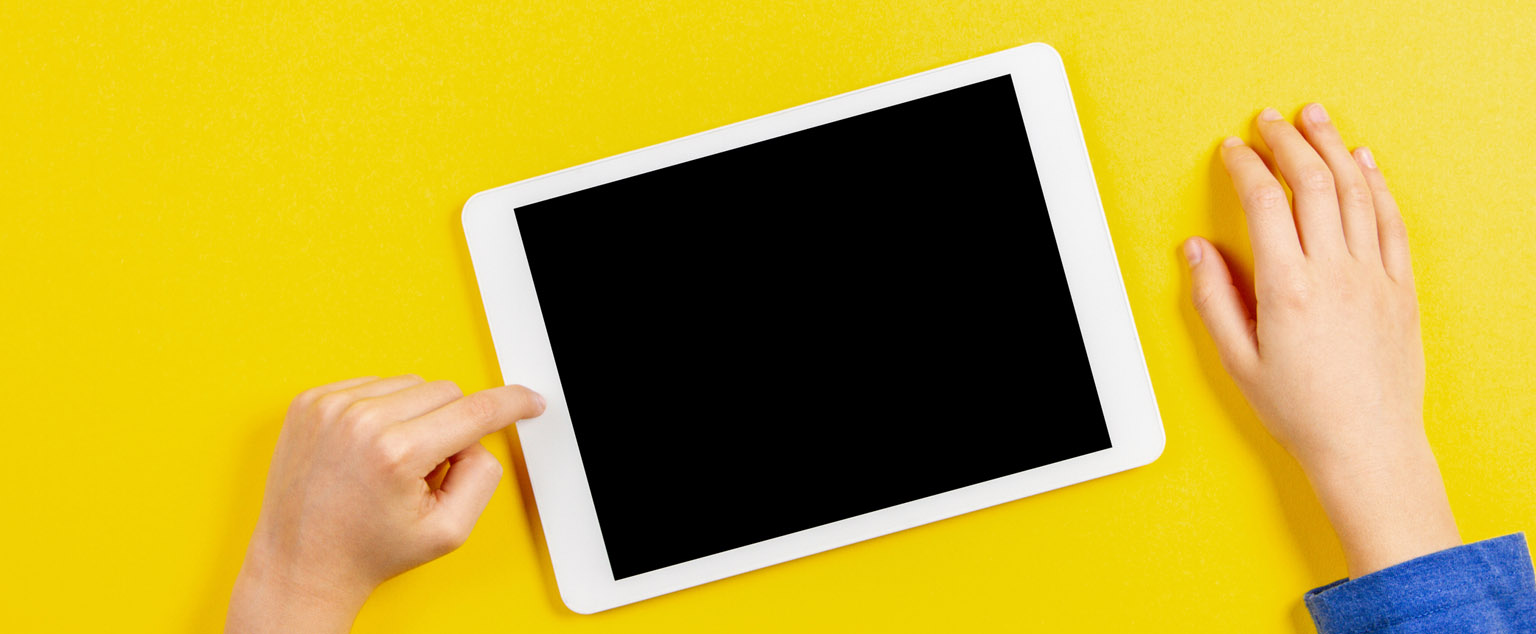Right, That's Enough. Screens Off!

"Whether its video games or homework, the children have a lot of screen time. Too much if unchecked." Father-of-two Al explains how he and his wife accept and adapt to their children's needs but try their best to keep things under control
In the "old days" screen time was simple: television. There were limited kids' programmes and channels and we, as the responsible adults, were the only ones with the remote control. Now the world has changed.
An additional screen
TV is now only one of many screens in our house; others being a range of laptops, tablets and mobiles. With our two kids we did have control still, by virtue of being able to limit their usage and because they did not have their own mobiles. However, with one of them getting older (apparently a feature of all children) and moving to secondary school, it all changed significantly. With our small (but growing) person now going independently to and from school, we did what seemed to be the norm in giving their kids their own (recycled) mobile phone.
However, whilst it meant that as parents we could keep in touch and check all was well, it also meant there was an additional screen at home just for them to play on and be distracted by.
Multimedia abilities
The other big change was secondary school itself, which has a tablet policy. That is, all pupils must have a tablet as part of their school equipment. The school then uses this as a blended resource as part of normal classroom learning, and teachers are able to direct the kids to research things, share their work (which is now submitted electronically) and use their fully multimedia abilities in the lessons. This then has in turn brought about a change at home, in that now when we find a small person on a device, rather than playing games etc., they can actually genuinely be "doing homework". Often, in fact, we find them with two screens - a laptop on which they are writing the homework, and the other screen where they can be researching some of the details for this.
And since this is school work, how can we complain about the time they are spending on the screen(s) to complete this?
Age is not an issue in this, as our other small person, although still in primary school, also needs to make use of a screen. Recently, he had to produce a presentation. There was a choice: either produce a pen-and-paper version, or else a purely digital version using, say, Powerpoint. Even if he had chosen a non-computer route, he would have still needed some screen time access, to look up images and information which could then be printed out to be stuck to a piece of paper.
And since this is homework, we can't say no - can we?
In a difficult place
So where does this then leave us as parents trying to "control" screen time?
In a difficult place.
There is clearly widespread need or demand for them to use screens purely in an educational manner. The challenge then is in balancing the screen-based homework with being able to relax and have some playtime. However, like many children, both of our kids like playing video games - and these use screens too!
The plus side is that both of them are enjoying creative games, such as Minecraft, and this is surely better than playing straight online 'shoot-'em-ups'. Plus, they tend to play in multi-player mode, enjoying each other's company, rather than solo one at a time, with the other sitting watching and maybe complaining they are not getting their turn!
Recalibrate and reset
So, whilst some of this screen interaction can be for good, too much can be disruptive. As such. we have been trying to work on them having - for each hour's gaming - at least an hour off doing non-screen activity; a chance for them to recalibrate and reset. Plus, no devices just before bedtime and when going upstairs to bed. This is helped by the fact that a number of the devices needing charging, so it's a good reason to have to leave the devices downstairs to charge and not be playing late at night.
Our exception to this is allowing them to have a Kindle: it's a far more passive activity and they enjoy reading.
Expert parents
We are still trying to balance the homework screen time in a similar way to gaming, but being more flexible in the approach. Some days there is more homework than others, so we do allow them to use the screens. But by actively checking in with them what needs to be done, we are trying to have some after-school evenings without screens.
Of course after this first year of secondary school we are now expert parents in controlling all of this. Well, that's what I told my other half via WhatsApp earlier, whilst writing this on one of my other screens...
Al, father of two 'screenagers', currently aged 12 and 10 years old





